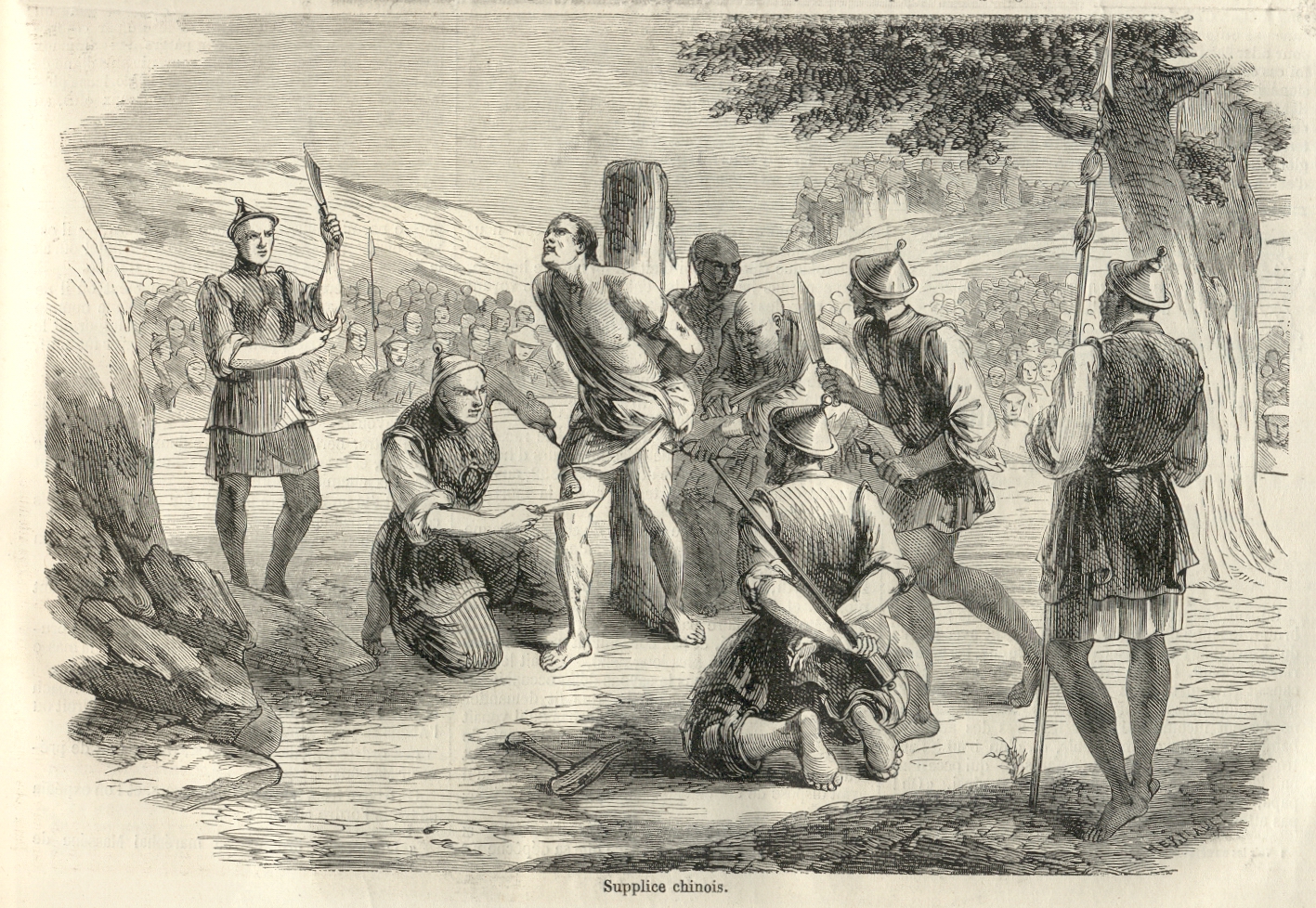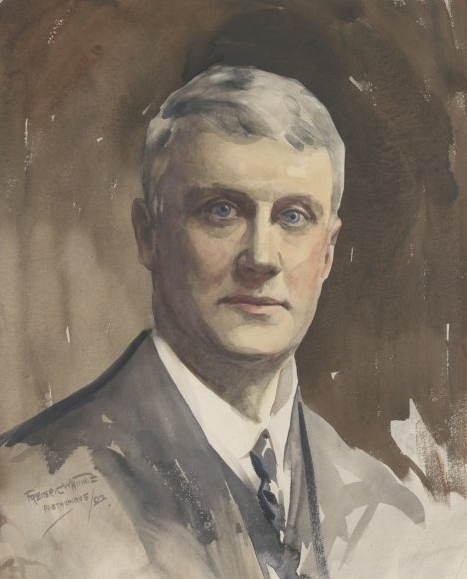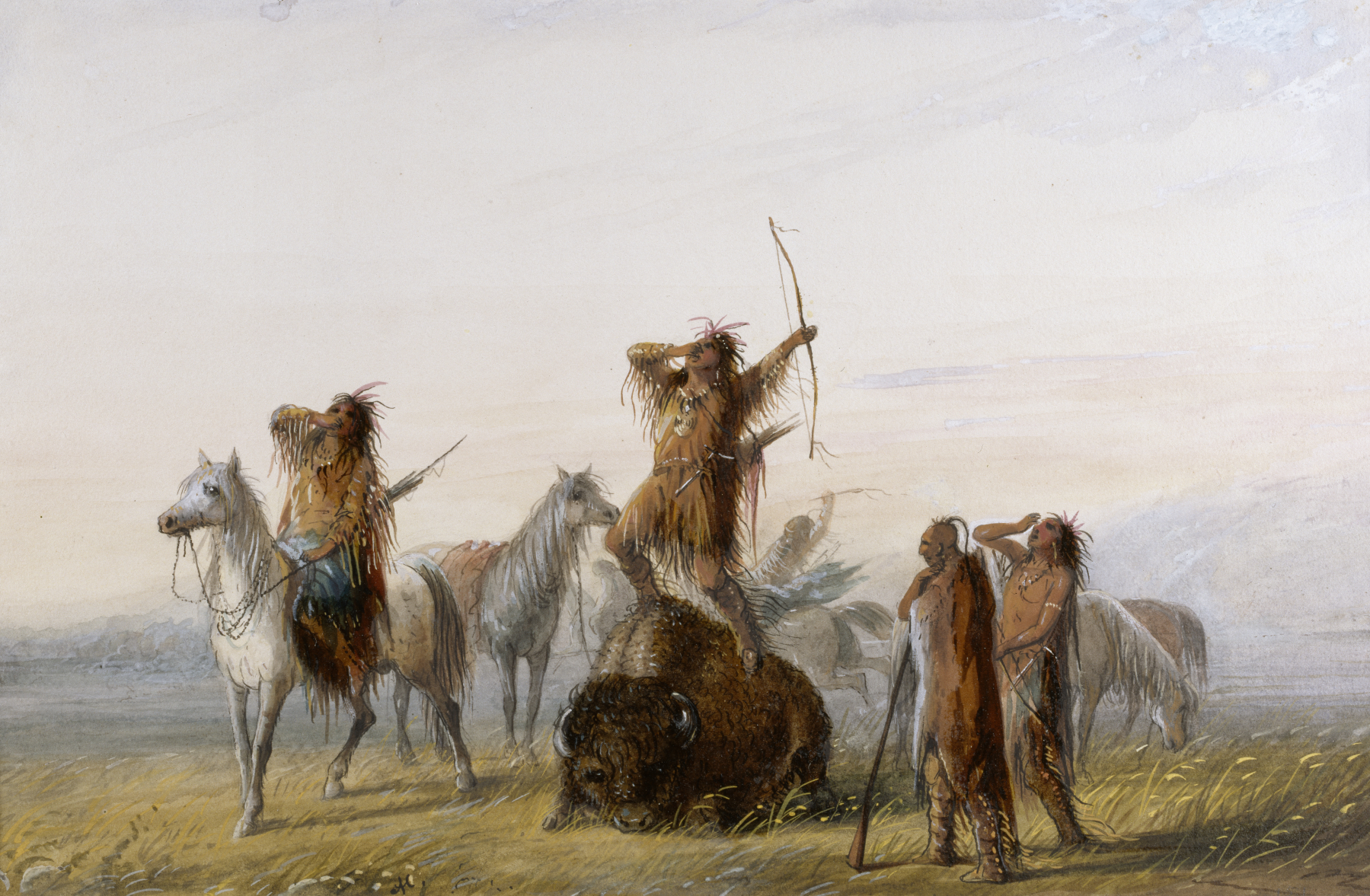|
Lingchi
''Lingchi'' (; ), translated variously as the slow process, the lingering death, or slow slicing, and also known as death by a thousand cuts, was a form of torture and execution used in China from roughly 900 CE up until the practice ended around the early 1900s. It was also used in Vietnam and Korea. In this form of execution, a knife was used to methodically remove portions of the body over an extended period of time, eventually resulting in death. ''Lingchi'' was reserved for crimes viewed as especially heinous, such as treason. Some Westerners were executed in this manner. Even after the practice was outlawed, the concept itself has still appeared across many types of media. Etymology The term ''lingchi'' first appeared in a line in Chapter 28 of the third-century BCE philosophical text '' Xunzi''. The line originally described the difficulty in travelling in a horse-drawn carriage on mountainous terrain. Later on, it was used to describe the prolonging of a person's ag ... [...More Info...] [...Related Items...] OR: [Wikipedia] [Google] [Baidu] |
Yuan Chonghuan
Yuan Chonghuan (; 6 June 1584 – 22 September 1630), courtesy name Yuansu or Ziru, was a Chinese politician, military general and writer who served under the Ming dynasty. Widely regarded as a patriot in Chinese culture, he is best known for defending Liaoning from invasions launched by the Jurchen-led Later Jin dynasty. As a general, Yuan Chonghuan excelled as a cannoneer and sought to incorporate European cannon designs into the Ming arsenal. Yuan's military career reached its height when he defeated the Later Jin ruler, Nurhaci, and his army in the first Battle of Ningyuan. Later on, Yuan also defeated Nurhaci's son and successor, Hong Taiji, and his 200,000-strong army composed of mostly ethnic Mongol soldiers at the second Battle of Ningyuan. Yuan met his end when he was arrested and executed by ''lingchi'' ("slow slicing") on the order of the Chongzhen Emperor under false charges of treason, which were believed to have been planted against him by the Later Jin. Early ... [...More Info...] [...Related Items...] OR: [Wikipedia] [Google] [Baidu] |
The Injustice To Dou E
''Dou E Yuan'', commonly translated as ''The Injustice to Dou E'', and also known as ''Snow in Midsummer'', is a Chinese play written by Guan Hanqing (c. 1241–1320) during the Yuan dynasty. The full Chinese title of the play is ''Gan Tian Dong Di Dou E Yuan'', which roughly translates to ''The Injustice to Dou E that Touched Heaven and Earth''. The story follows a child bride turned widow, Dou E, who is wrongly convicted of crimes by a corrupt court official for actions perpetrated by a rejected suitor, Zhang the mule. After her execution, three prophesied phenomena occur to prove her innocence, including blood raining from the sky, snow in June and a three-year drought. After a visit from the ghost of Dou E, her father eventually brings the corrupt court official, a doctor and Mule Zhang to justice, thereby vindicating his daughter. Today, the phrase "snowing in June" is still widely used among Chinese speakers as a metaphor for a miscarriage of justice. The story was repeatedly ... [...More Info...] [...Related Items...] OR: [Wikipedia] [Google] [Baidu] |
Robert Heindl
Robert Heindl (24 July 1883 - 25 September 1958) was a German criminologist and lawyer, most noted for his advocacy of fingerprinting A fingerprint is an impression left by the friction ridges of a human finger. The recovery of partial fingerprints from a crime scene is an important method of forensic science. Moisture and grease on a finger result in fingerprints on surfac .... This began after he read an article in 1902 on Edward Henry's use of the method in India - he requested the relevant files from the British imperial authorities in Kolkata, Calcutta, studied them extensively and then proposed to all the main police authorities in Germany that they adopt the technique. He was born in Munich and died in Irschenhausen. In 1953 he was awarded the Cross of Merit of the Order of Merit of the Federal Republic of Germany. References People from Munich 1883 births 1958 deaths German criminologists 20th-century German lawyers Fingerprints Officers Crosses of the Order ... [...More Info...] [...Related Items...] OR: [Wikipedia] [Google] [Baidu] |
Kang Youwei
Kang Youwei (; Cantonese: ''Hōng Yáuh-wàih''; 19March 185831March 1927) was a prominent political thinker and reformer in China of the late Qing dynasty. His increasing closeness to and influence over the young Guangxu Emperor sparked conflict between the emperor and his adoptive mother, the regent Empress Dowager Cixi. His ideas were influential in the abortive Hundred Days' Reform. Following the coup by Cixi that ended the reform, Kang was forced to flee. He continued to advocate for a Chinese constitutional monarchy after the founding of the Republic of China. Early life Kang was born on 19March 1858 in Su Village, Danzao Town, Nanhai County, Guangdong province (now the Nanhai District of Foshan City). According to his autobiography, his intellectual gifts were recognized in his childhood by his uncle. As a result, from an early age, he was sent by his family to study the Confucian classics to pass the Chinese civil service exams. However, as a teenager, he ... [...More Info...] [...Related Items...] OR: [Wikipedia] [Google] [Baidu] |
John Roberts (historian)
John Morris Roberts (14 April 1928 – 30 May 2003), often known as J. M. Roberts, was a British historian with significant published works. From 1979 to 1985 he was vice chancellor of the University of Southampton, and from 1985 to 1994, Warden of Merton College, Oxford. He was also well known as the author and presenter of the BBC TV series ''The Triumph of the West'', first broadcast in 1985. Biography Roberts was born in Bath, the son of a department store worker and educated at Taunton School. He won a scholarship to Keble College, Oxford, and took a first in Modern History in 1948.Guardian Obituary Retrieved 13 July 2020 After , he was e ... [...More Info...] [...Related Items...] OR: [Wikipedia] [Google] [Baidu] |
Opium
Opium (or poppy tears, scientific name: ''Lachryma papaveris'') is dried latex obtained from the seed capsules of the opium poppy '' Papaver somniferum''. Approximately 12 percent of opium is made up of the analgesic alkaloid morphine, which is processed chemically to produce heroin and other synthetic opioids for medicinal use and for the illegal drug trade. The latex also contains the closely related opiates codeine and thebaine, and non-analgesic alkaloids such as papaverine and noscapine. The traditional, labor-intensive method of obtaining the latex is to scratch ("score") the immature seed pods (fruits) by hand; the latex leaks out and dries to a sticky yellowish residue that is later scraped off and dehydrated. The word '' meconium'' (derived from the Greek for "opium-like", but now used to refer to newborn stools) historically referred to related, weaker preparations made from other parts of the opium poppy or different species of poppies. The production methods ... [...More Info...] [...Related Items...] OR: [Wikipedia] [Google] [Baidu] |
George Ernest Morrison
George Ernest Morrison (4 February 1862 – 30 May 1920) was an Australian journalist, political adviser to and representative of the government of the Republic of China during the First World War and owner of the then largest Asiatic library ever assembled. Early life Morrison was born in Geelong, Victoria, Australia. His father George Morrison who emigrated from Edinkillie, Elgin, Scotland, to Australia in 1858, was headmaster of The Geelong College where Morrison was educated. George, senior, married Rebecca Greenwood, of Yorkshire, in 1859 and Morrison was the second child of the marriage. Three of Morrison's seven uncles were rectors of the Presbyterian Church and two of the four others principal (Alexander) and master (Robert) of Scotch College, Melbourne, where George, senior, also taught mathematics for six months. Another Uncle, Donald Morrison was the Rector of The Glasgow Academy between 1861 until 1899. He won Geelong College's Scripture History gold medal in 1876 ... [...More Info...] [...Related Items...] OR: [Wikipedia] [Google] [Baidu] |
Orientalism
In art history, literature and cultural studies, Orientalism is the imitation or depiction of aspects in the Eastern world. These depictions are usually done by writers, designers, and artists from the Western world. In particular, Orientalist painting, depicting more specifically the Middle East, was one of the many specialisms of 19th-century academic art, and the literature of Western countries took a similar interest in Oriental themes. Since the publication of Edward Said's '' Orientalism'' in 1978, much academic discourse has begun to use the term "Orientalism" to refer to a general patronizing Western attitude towards Middle Eastern, Asian, and North African societies. In Said's analysis, the West essentializes these societies as static and undeveloped—thereby fabricating a view of Oriental culture that can be studied, depicted, and reproduced in the service of imperial power. Implicit in this fabrication, writes Said, is the idea that Western society is developed, ra ... [...More Info...] [...Related Items...] OR: [Wikipedia] [Google] [Baidu] |
Shen Defu
Shen Defu () (1578–1642) was a Chinese writer and bureaucrat during the Ming Dynasty. He lived in Zhejiang. In 1618, he achieved the rank of '' juren'' in the Imperial examinations, but failed an exam for promotion to the rank of ''jinshi'' a year later. His principal work was the ''Wanli ye huo bian'' (Miscellaneous notes of Wanli, ), which he completed in 1607. He was married for a time to the courtesan Xue Susu Xue Susu (; also known as Xue Wu(薛五), Xuesu(薛素), Sujun among other pen names) (1564–1650? C.E.) was a Chinese courtesan. Known as one of the "Eight Great Courtesans of the Ming Dynasty", she was an accomplished painter and poet, and .... References {{Authority control Ming dynasty historians 1578 births 1642 deaths Historians from Beijing 17th-century Chinese historians ... [...More Info...] [...Related Items...] OR: [Wikipedia] [Google] [Baidu] |
Coup De Grâce
A coup de grâce (; 'blow of mercy') is a death blow to end the suffering of a severely wounded person or animal. It may be a mercy killing of mortally wounded civilians or soldiers, friends or enemies, with or without the sufferer's consent. Methods Examples of coup de grâce include shooting the heart or head (typically the back of the skull) of a wounded, but still living, person during an execution or by humanely killing a suffering, mortally wounded soldier, in war, for whom medical aid is not available. In pre-firearms eras the wounded were finished with edged or impact weapons to include cutting throats, blows to the head, and thrusts to the heart. Other examples include the officer leading a firing squad administering a coup de grâce to the condemned with a pistol if the first hail of gunfire fails to kill the prisoner; or a '' kaishakunin'' who performs a beheading to quickly end a samurai's agony after seppuku. Other uses The phrase may also refer to the final eve ... [...More Info...] [...Related Items...] OR: [Wikipedia] [Google] [Baidu] |
Ming Dynasty
The Ming dynasty (), officially the Great Ming, was an imperial dynasty of China, ruling from 1368 to 1644 following the collapse of the Mongol-led Yuan dynasty. The Ming dynasty was the last orthodox dynasty of China ruled by the Han people, the majority ethnic group in China. Although the primary capital of Beijing fell in 1644 to a rebellion led by Li Zicheng (who established the short-lived Shun dynasty), numerous rump regimes ruled by remnants of the Ming imperial family—collectively called the Southern Ming—survived until 1662. The Ming dynasty's founder, the Hongwu Emperor (r. 1368–1398), attempted to create a society of self-sufficient rural communities ordered in a rigid, immobile system that would guarantee and support a permanent class of soldiers for his dynasty: the empire's standing army exceeded one million troops and the navy's dockyards in Nanjing were the largest in the world. He also took great care breaking the power of the court eunuchs and ... [...More Info...] [...Related Items...] OR: [Wikipedia] [Google] [Baidu] |







